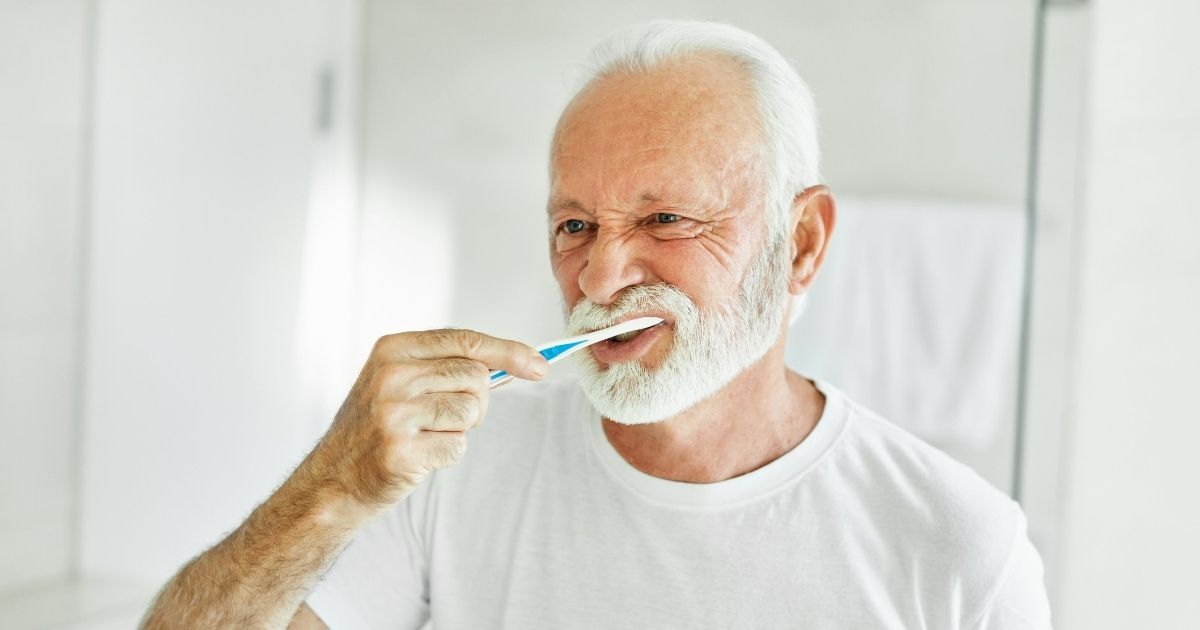Dental implant aftercare: the key to long-lasting implant success
Ensuring your dental implants last and support a healthy smile means sticking to top-notch dental implant aftercare.
This guide is your go-to for all things related to caring for your dental implants, whether you're just starting to think about getting them or are currently in the healing phase post-procedure.
Reading time: 5 minutes

What are the main elements of a dental implant treatment?
- Immediately after surgery: Your journey in dental implant aftercare kicks off as soon as you leave the dentist's chair. The first few days are crucial. You'll want to take it easy, eat soft foods, and avoid anything that could disturb the implant site. Gently rinse your mouth with salt water or a dentist-recommended mouthwash to keep things clean without harsh brushing.
- The long-term aftercare: Good dental implant aftercare doesn't stop after the initial healing. It's about incorporating habits into your daily routine that will protect your implants. Use a soft-bristled toothbrush, avoid abrasive toothpaste, and floss carefully to keep your implants and natural teeth gleaming. And remember, no smoking – it's a no-go for implant longevity.
- Check-ins with your dentist: Part of your dental implant aftercare involves regular visits back to your dentist. These check-ups let your dentist keep an eye on your implants, ensuring everything's settling in just right and giving your oral health the green light.
Immediate aftercare for dental implants
The first 48 hours after receiving your dental implants are critical for your recovery process. Some of the tips for the immediate aftercare include:
- Rest and recovery: Prioritizing rest minimizes swelling and bleeding. Engaging in strenuous activities can jeopardize your dental implant aftercare process.
- Swelling management: Applying ice packs to the cheek area intermittently can significantly reduce swelling.
- Eating soft foods: Soft foods will ensure that no undue pressure is put on your new implant, a vital part of your dental implant aftercare.
- Maintaining oral hygiene: Gentle rinsing with salt water or an antimicrobial mouthwash, avoiding direct brushing of the area, is recommended in the initial days of your dental implant aftercare.
Additional immediate implant aftercare tips
Pain management: It's normal to experience some discomfort after the implant surgery. Your dentist may recommend over-the-counter pain relievers or prescribe medication to manage pain effectively. Following their guidelines carefully can help ensure that your recovery is as comfortable as possible.
Bleeding control: Minor bleeding is expected after the procedure. If bleeding occurs, gently biting down on a gauze pad placed over the surgical site can help. Change gauzes as directed by your dentist, and avoid disturbing the area to ensure proper healing.

Long-term dental implant aftercare
The success of dental implant aftercare doesn’t end after the initial recovery period. Long-term care is essential.
- Regular brushing and flossing: Employing a soft-bristled brush and non-abrasive toothpaste is recommended. Flossing around the implant helps remove plaque, a cornerstone of effective dental implant aftercare.
- Routine dental check-ups: Professional cleanings and check-ups every 6 months are pivotal for dental implant aftercare, ensuring your implant remains in top condition.
- Avoiding harmful habits: Smoking and chewing on hard items can undermine your dental implant aftercare efforts, affecting the implant's success rate.
Enhancing long-term dental implant aftercare
- Implant-specific oral hygiene tools: In addition to regular brushing and flossing, consider using interdental brushes, soft picks, or water flossers designed specifically for dental implants. These tools can help clean hard-to-reach areas around your implants and reduce the risk of peri-implant diseases.
- Diet and nutrition: Maintaining a balanced diet plays a critical role in the healing process. Foods rich in vitamins A and C can promote healing and help your body repair tissues. Incorporating such nutrients into your diet can enhance your overall recovery and the health of your gums and teeth surrounding the implant.
Monitoring for dental implant complications
Part of dental implant aftercare is being vigilant for signs of infection or implant failure, such as unusual or persistent pain, swelling, or a loose implant. Immediate consultation with your dentist is crucial in the dental implant aftercare process should you notice any of these symptoms.
What are the do’s and don’ts after dental implants?
Do´s After Dental Implants
- Follow your dentist’s advice: Adhere strictly to the aftercare instructions provided by your dental professional. These guidelines are tailored to your individual needs and the specifics of your dental implant procedure.
- Maintain oral hygiene: Keep your mouth clean to prevent infections. Use a soft-bristled toothbrush and a gentle, non-abrasive toothpaste. Consider using interdental brushes or water flossers as recommended by your dentist to clean around the implant site without causing irritation.
- Eat soft foods: In the days following your surgery, stick to soft and liquid foods to avoid putting pressure on your new implants. Gradually reintroduce harder foods as advised by your dental team.
- Attend all follow-up appointments: Regular check-ups allow your dentist to monitor your healing and the integration of the implant with your jawbone, making any necessary adjustments to your aftercare plan.
- Stay hydrated: Drinking plenty of water promotes healing and helps keep your mouth clean.
- Rest and recover: Give your body time to heal by avoiding strenuous activities in the days immediately following your surgery.
Don'ts after dental implants
- Don’t smoke: Smoking can impede healing and increase the risk of implant failure. UK dentists strongly advise against smoking both before and after implant surgery.
- Avoid hard and sticky foods: Hard or sticky foods can damage your implants. Avoid these types of foods until your dentist says it's safe to reintroduce them.
- Don’t skip oral hygiene: Neglecting your oral hygiene routine can lead to infections that jeopardize the success of your implant.
- Avoid using straws: In the initial healing phase, sucking motions can disturb the surgical site. Stick to drinking directly from a cup.
- Don’t ignore pain or discomfort: While some discomfort is normal, excessive pain or swelling should not be ignored. Contact your dentist if you experience any concerning symptoms.
- Don’t miss your dental appointments: Skipping follow-up appointments can lead to unnoticed complications. Regular visits are essential for ensuring the health and longevity of your implants.
Proper dental implant aftercare is crucial for ensuring the durability and effectiveness of your dental implants. Following these dental implant aftercare instructions closely, along with practising thorough oral hygiene, can help keep your implants in optimal condition for many years.